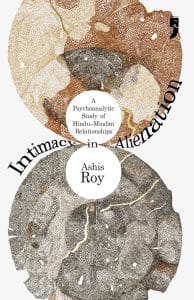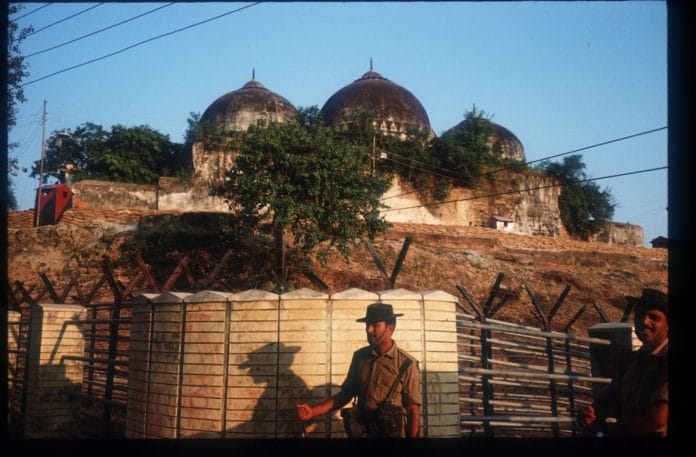Gradually, Karuna spoke of her present relationship with her husband, Shoaib. They met during her post-graduation. She was 22 years old and he was 28. Shoaib was mobilising young men in a slum and harnessing their energies for constructive activities.
They spent a lot of time in the field and became close to each other. Later, they established an NGO together, which focuses on strengthening Hindu-Muslim harmony among the youth by bringing together boys and girls to make them work collectively on issues such as environment, sports and reproductive health. After the Babri Masjid riots in 1992, Shoaib was picked up by the police.
He was later found not guilty. Shoaib recovered with the help of his family and then channelled his energies into working with Hindu and Muslim youth. He started a cricket club for Hindus and Muslims, and Karuna felt inspired by his ability to not be vengeful and instead, be compassionate.
K: He was 28 years old. He had started a small youth group in Kandivali. He went through the Bombay riots when he was 18 years old; he along with his older brother were picked up from their house by the police. The door to their house was broken; they were picked up and taken away to prison.
They were false convictions. He still has some scars. He was absolutely confused as to why this had happened with him. He did not come from traditional conservative, Muslim family. I have always told him that with my kind of upbringing, probably, if I were in his shoes, and with my temper, you know, I would have taken to guns. His family helped him sort out the whole thing.
He channelized his energy into setting up a youth group, comprising a mix of Hindus and Muslims, girls and boys.
We went to Hyderabad. We were selected to participate in the youth social forum. Those days cemented the relationship because you know he was away from his family, and we had time for us. We spoke a lot.
He is actually soft-spoken. Those four days in Hyderabad, he went all out to make sure that this relationship will be sustained. I was still not sure. I was still looking at it as work and team work. He, however, left no stone unturned…he even took me to his home. His mother is from Hyderabad.
Their love and fondness grew for each other and Karuna supported Shoaib as he got back on his feet. Karuna sensed certain things with Shoaib that he would experience and live out exclusively with her. Their long courtship was filled with travel and companionship.
K: He has no hassles. Except, he won’t eat at someone’s place, he will share food only with me. He doesn’t share a plate even with his parents. Not even with our son. I have brought it up many times but he says, ‘I am sorry, but that is how it is.’
K: We travelled together. I think he needed a lot of companionship and, as I said, he was really being exploited, so he needed it. I think his drive in the relationship probably came from the confidence he was gaining, out of the different exposure. He loves talking about social issues. He likes addressing them; we have a common love for Urdu and music, which we shared for a long time.
Karuna and Shoaib were married in 2010 after eight years of courtship. Although they wanted her parents’ approval, it was out of the question. Karuna’s mother attempted suicide twice during the eight-year period. Shoaib wanted her parents’ approval before getting married as well. However, her parents have never met him.
When I heard this, I admired their commitment and felt some sadness for Shoaib. After they were married, Shoaib’s family tried to impose some conditions on Karuna.
K: My sisters-in-law put forth some conditions such as I will have to pray five times a day, and my name would be changed and that I would not be allowed to take up a job. These were all gendered things. Shoaib was firmly against this.
Karuna’s parents’ relationship towards her marriage changed over the years.
K: Yeah, so my mother, she actually supported Shoaib a lot when I was delivering my child, when I was in labour. She was completely with Unravelling a Hindu Woman’s Desire for a Muslim Man him because Shoaib was very scared and nervous. Later I came to know that my mother was constantly talking to him over the phone. And soothing his tears. . . This is a big thing.
Because, otherwise, they don’t talk. Even now, they don’t talk. Now my mother asks me how he’s doing and both my parents make sure that they send him a gift every festival.
As Karuna recounted the birth of their son and the semblance of a family, she shared something disturbing. Before her marriage, Karuna was diagnosed with a condition of the uterus called endometriosis. It could be treated by removing the uterus or by giving birth to a child, which her doctors had predicted was not possible. Her menstrual cycle needed to stop for her to get treated.
Four days after knowing about this condition, she discovered that Shoaib was in a relationship with a girl, who was 18 years younger to him. He didn’t deny it. He didn’t want to leave her. He thought that Karuna loved him so much that she would adapt to his relationship. Karuna had already conceived by then.
Karuna was shocked because Shoaib had built this other relationship while he was with Karuna. Rather than experiencing the violation fully and wanting to move away, Karuna remembered Shoaib’s fragility, loss and confusion.
K: To the extent that I had become like a mother in his life more than anything else . . . and very unconsciously because I didn’t want to be that.
 This excerpt from ‘Intimacy in Alienation: A Psychoanalytic Study of Hindu-Muslim Relationships’ by Ashis Roy has been published with permission from Yoda Press.
This excerpt from ‘Intimacy in Alienation: A Psychoanalytic Study of Hindu-Muslim Relationships’ by Ashis Roy has been published with permission from Yoda Press.






